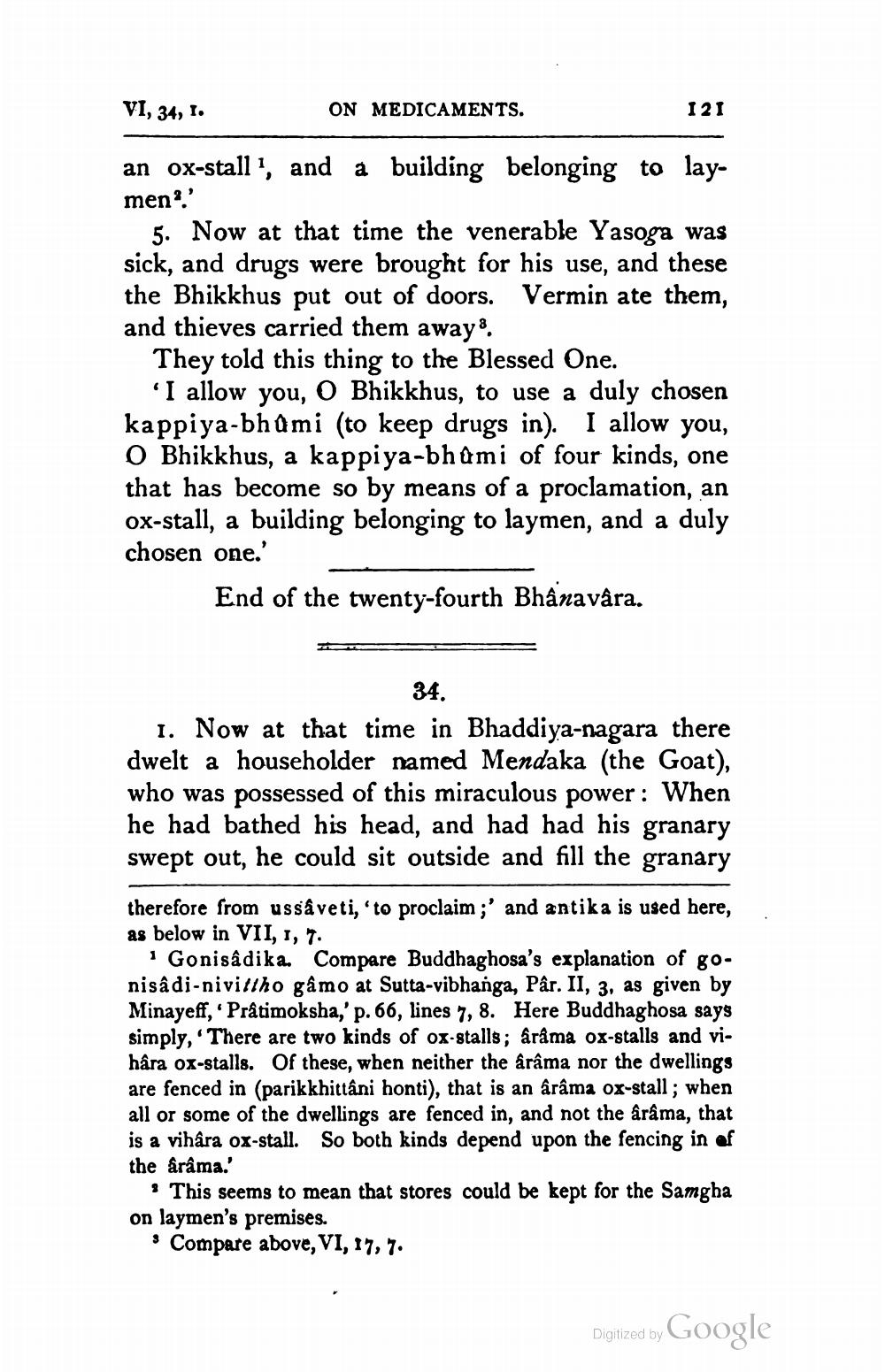________________
VI, 34, 1.
ON MEDICAMENTS.
121
an ox-stall', and a building belonging to laymen?'
5. Now at that time the venerable Yasoga was sick, and drugs were brought for his use, and these the Bhikkhus put out of doors. Vermin ate them, and thieves carried them away 8.
They told this thing to the Blessed One.
'I allow you, O Bhikkhus, to use a duly chosen kappiya-bhdmi (to keep drugs in). I allow you, O Bhikkhus, a kappiya-bhami of four kinds, one that has become so by means of a proclamation, an ox-stall, a building belonging to laymen, and a duly chosen one.'
End of the twenty-fourth Bhânavara.
34. 1. Now at that time in Bhaddiya-nagara there dwelt a householder named Mendaka (the Goat), who was possessed of this miraculous power : When he had bathed his head, and had had his granary swept out, he could sit outside and fill the granary
therefore from ussâveti,'to proclaim ;' and antika is used here, as below in VII, 1, 7.
Gonisâdika. Compare Buddhaghosa's explanation of gonisâ di-nivitiho gầmo at Sutta-vibhanga, Pâr. II, 3, as given by Minayeff, 'Prâtimoksha,' p. 66, lines 7, 8. Here Buddhaghosa says simply, 'There are two kinds of ox-stalls; aråma ox-stalls and vihâra ox-stalls. Of these, when neither the ârâma nor the dwellings are fenced in (parikkhittani honti), that is an arâma ox-stall; when all or some of the dwellings are fenced in, and not the drama, that is a vihara ox-stall. So both kinds depend upon the fencing in of the arama.'
. This seems to mean that stores could be kept for the Samgha on laymen's premises.
* Compare above, VI, 17, 7.
Digitized by
Digitized by Google




